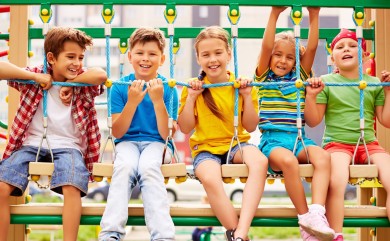 “I thought she was my friend!”. How many times have you ever heard that statement? It usually comes after there has been some kind of hurt or disagreement or abandonment between friends.
“I thought she was my friend!”. How many times have you ever heard that statement? It usually comes after there has been some kind of hurt or disagreement or abandonment between friends.
What happens next is usually extremely important in determining the outcome of the friendship once a negative incident has occurred.
- Do you try to boost their self esteem and tell them all the positives about themselves?
- Do you chime in with some negatives about the (ex) friend?
- Do you listen and keep your mouth shut?
Our kids need to learn from us how to be a good friend.
They need us to model good friendship.
They need us to teach them character qualities so they can be a good friend.
They need us to be dependable for our friends.
They need us to not gossip and say negative things about our friends.
They need us to admit when we are wrong and say sorry.
They need us to challenge and correct bad behaviour in them, our children.
Have you ever asked your child, “What makes you a good friend”? It may very well be time to do that. Part of being a good friend is who you are as a person and how you treat your friends.
There are some great things we can teach, train, model, coach, role play and help our kids with so that they can be a good friend. In our family we read great books and also use stories as a fantastic way to highlight important character qualities and friendship abilities.
There are many books out there that help in this way. Classics such as “Little Women”, “Anne of Green Gables” and “Little House on the Prairie” series are fantastic to use to chat about character and friendship as are biographies such as the series “YWAM Christian Heroes Then and Now” and the book series such as the “Freedom” series by Lois Walfrid Johnson. For younger girls, there are several great series: Hilda Stahl – “Best Friends”. Beverley Lewis – “Cul-de-Sac Kids”. Nancy Simpson Levene – “Alex”. Nancy Rue – “Here’s Lily” and “Faith Girlz” series. Great series for younger boys that teach character and friendship skills include: “Ladd Family Adventures” by Lee Roddy, “Sugar Creek Gang” by Paul Hutchens, “Adventures in Odyssey” by Paul McCusker. Even our family’s favourite book “The Best Christmas Pageant Ever” by Barbara Robinson highlights great friendship values.
This blog is the fourth blog in a series on friendship. The first blog was about the Purpose of friendships and Helping our children develop solid friendships, then Expectations of friendship, followed by How to make friends.
Below I have listed a number of traits that are great to have in a friend and in yourself to be a great friend. I have listed a few questions under each one. It would be a great learning opportunity to go through these with your kids and see what they think and feel about this. Maybe even look at these questions in relation to yourself and your friends.
- Trustworthy
- Can I keep confidences?
- Am I reliable?
- Do I do what I say I’ll do?
- Can you trust me?
- Am I honest?
- Am I loyal and stick by a friend even when a ‘better’ option comes up?
- Do I gossip or back stab people?
- Healthy boundaries
- Can I appropriately manage my feelings?
- Do I always monopolise the conversation?
- Does everyone always have to do what I want to do?
- Do I always have a drama happening in my life?
- Am I self-controlled?
- Do I know how to co-operate with others and take turns?
- Do I need to be the centre of attention?
- Do I make time to connect with my friends?
- Do I allow my friends to do things without me and to have other friends?
- Do I allow other people to dictate how I spend my free time?
- Am I always waiting for certain people to include me and saying no to others whilst I wait?
- Variety of interests
- Am I interesting to talk with?
- Do I have a variety of different things I do each week?
- Do I mix with a variety of different people each week?
- How do I inspire other people to live better lives?
- Time
- Am I constantly saying no to my friends because I am too busy?
- Do I sacrifice some things in order to join my friends?
- Do I have space in my week in case something unexpected occurs?
- Managing conflict
- Can I manage conflict well?
- How do I manage conflict?
- Am I good at apologising and saying sorry and meaning it?
- Do I hold grudges or offense?
- Great character traits – kind, compassionate, empathetic
- Am I empathetic and compassionate?
- Am I a kind person?
- How do I help others?
- How have I recently helped someone who can’t ‘pay’ me back?
- How am I contributing to make society a better place?
I would love to hear your thoughts on what makes a great friend and how you believe you can be a great friend. Please feel free to comment below.